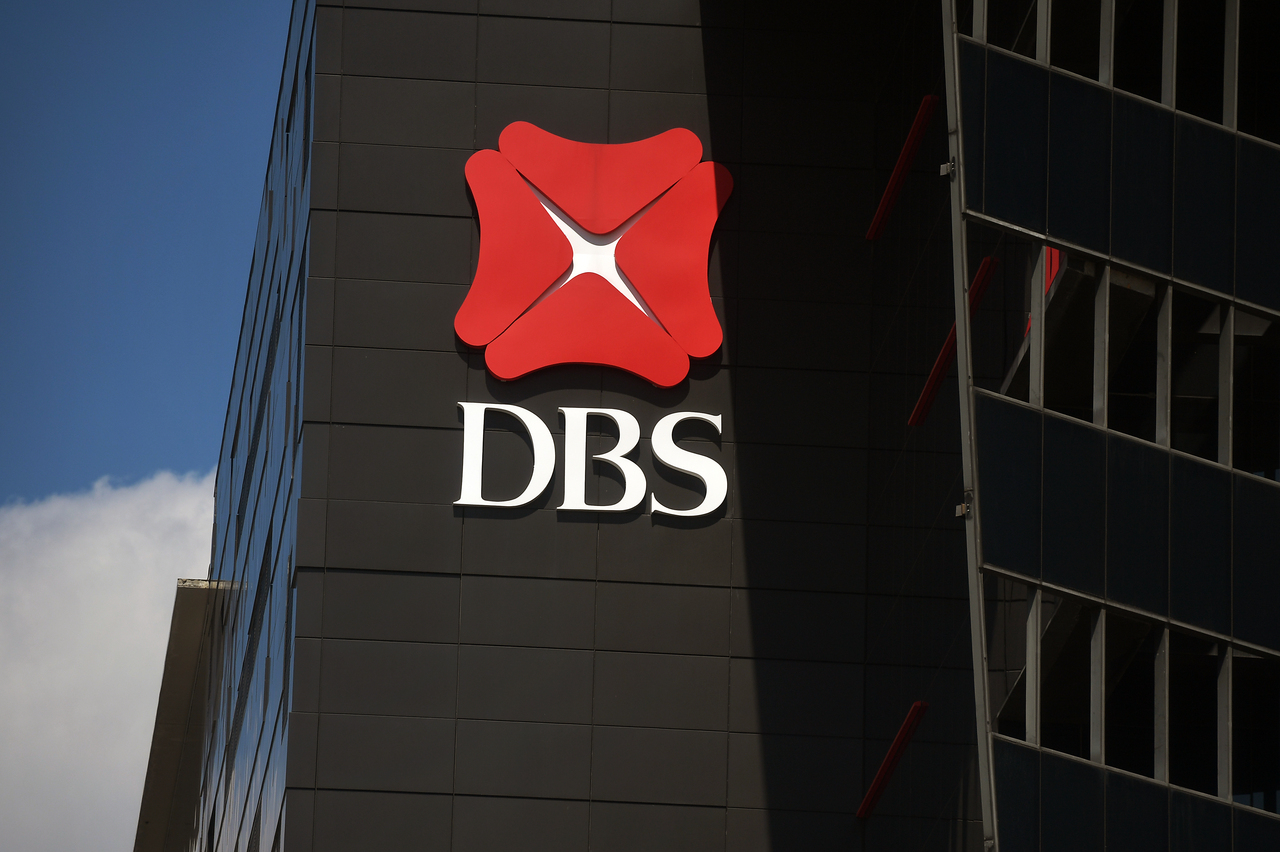DBS CEO upbeat on growth outlook despite regional Covid-19 surge; Q2 profit rises 37%
Sign up now: Get ST's newsletters delivered to your inbox

DBS profit for the first half rose 54 per cent to $3.71 billion.
PHOTO: ST FILE
Follow topic:
SINGAPORE - DBS Group Holdings joined peers OCBC Group and UOB in reporting strong earnings that beat forecasts, while projecting that the growth momentum will continue despite ongoing Covid-19 uncertainties.
Singapore's largest lender posted on Thursday (Aug 5) a 37 per cent jump in second-quarter net profit to $1.7 billion after lower provisions.
Its earnings topped the $1.47 billion average estimate of five analysts polled by Bloomberg.
DBS has declared a dividend of 33 cents per share for the second quarter, compared with 18 cents a year ago, bringing the first-half dividend to 51 cents per share. This follows the Monetary Authority of Singapore's lifting of restrictions that capped dividend payouts from local banks and finance companies at 60 per cent of the previous year's dividend amid the pandemic.
On Wednesday, OCBC reported second-quarter net profit rose 59 per cent from a year ago to $1.16 billion, while UOB announced its quarterly earnings climbed 43 per cent to $1 billion.
S&P Global Ratings credit analyst Rujun Duan said Singapore banks have benefitted from strong macroeconomic tailwinds, especially the economic rebound in the United States and China.
She said: "Resurging working capital and investment demand from corporate clients, a vigorous mergers and acquisitions market, and a resilient consumer sector in Greater China and Singapore put them in a sweet spot for more lending opportunities."
DBS chief executive Piyush Gupta said business momentum and asset quality have been better than expected as the economic recovery from the pandemic takes hold.
"While risks remain, our pipeline remains healthy and we expect business momentum to be sustained in the coming quarters," he said.
He added that the surge in Covid-19 cases regionally is not likely to severely impact growth prospects and the latest economic data has been encouraging.
"The rise in cases is really not translating into 90 per cent of economic activity around the region. Sectors like F&B (food and beverage) and tourism tend to suffer but if we look at the nature of our book, our actual exposure to those sectors is very small," Mr Gupta told a briefing.
He noted that the bulk of the bank's loan book is in sectors like manufacturing and property which are doing well.
Mr Gupta said DBS' loans under moratorium are down to about 10 per cent of their original levels, adding: "We are not seeing a big pick-up in people's inability to pay once they come off moratoriums."
DBS raised its full-year loan growth projection to high single digit from mid-to-high single digit.
Net interest income fell 9 per cent year on year to $2.09 billion in the second quarter. Net interest margin - a key gauge of banks' profitability - dropped 17 basis points to 1.45 per cent and more than offset broad-based loan growth.
Fee income amounted to $868 million, the second highest after the previous quarter's record of $953 million and up 27 per cent from a year ago.
The growth was led by a 31 per cent rise in wealth management fees. Investment banking fees more than doubled and card fees rose 26 per cent as financial market activity and consumer spending recovered from the trough a year ago, said DBS.
Other non-interest income stood at $632 million, 15 per cent lower than a year ago and 20 per cent below the previous quarter.
"The declines were due to lower trading income in comparison with the two strongest trading quarters on record and higher investment gains a year ago," said DBS.
DBS set aside lower allowances of $79 million in the second quarter, down 91 per cent from a year ago, as the economic environment improved.
The bank said new non-performing asset formation declined to pre-pandemic levels and was significantly offset by repayments in both the first and second quarter.
Net profit for the first half rose 54 per cent to $3.71 billion.
Net profit for the first half rose 54 per cent to $3.71 billion.
Mr Eugene Tarzimanov, vice-president and senior credit officer at Moody's Investors Service, said: "DBS maintained its very high creditworthiness and strong balance sheet... Moody's expects DBS to maintain its very strong credit metrics in 2021 to 2022."
The bank's non-performing loan ratio was unchanged at 1.5 per cent and its CET1 (common equity Tier 1) ratio - a measurement of a bank's core equity capital compared with its total risk-weighted assets - rose to 14.5 per cent from 13.7 per cent over the same period last year.
All three banks' second-quarter profit, however, shone more dimly against their earnings in the previous quarter. DBS' latest earnings dipped 15 per cent from its all-time high net profit of $2.01 billion in the first quarter. OCBC's net profit fell 23 per cent from a record $1.5 billion while UOB's remained flat.
S&P Global Ratings noted that Singapore banks will still need to navigate asset quality pressures over the next 12 to 18 months: "The institutions' loan books are 10 to 25 per cent allocated to neighbouring markets in South-east Asia, which are struggling to contain waves of Covid-19 infections.
"Low vaccination rates in those markets have led to repeated lockdowns, reduced near-term economic prospects and a persistent need for loan repayment moratoriums."

